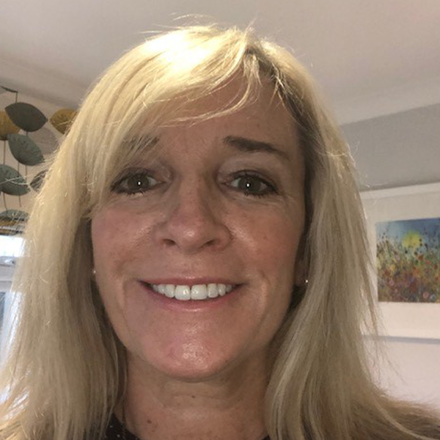"Counselling can’t bring back your eyesight, but it can help make life more enjoyable"
Posted: Tuesday 27 July 2021
Uncertainty and fear have been common feelings for us all over the past 18 months, as we live through our first pandemic.
But, for the Macular Society’s counselling team, the feeling of ‘the unknown’ is not new. It is a familiar theme which comes up repeatedly for anyone who has been diagnosed with macular disease.
In July, Suzanne Roberts from the Macular Society’s counselling service joined our Virtual Clinic to discuss how to manage these feelings and what you can do to look after your wellbeing.
“Knowing what’s going to happen helps us feel more in control,” Suzanne says. “Learning to accept change and adapt is a skill and it’s one we’re still learning and there is no doubt that adapting and learning is all too familiar for anyone diagnosed with macular disease.”
So, what can we do to manage these feelings? Suzanne shares some of her tips.
Remind yourself what you do know
“Remind yourself of the facts” says Suzanne. "It is helpful to remind yourself what is your own opinion and what is fact and continue to challenge your own negative assumptions."
One tip she suggests is thinking of someone who has a positive outlook and what they would say if they were in your situation?
It is normal to find yourself getting frustrated but when you do, keep coming back to the here and now and what you know now.
Manage your worries
Put your worries into two categories:
Worries you can do something about and worries you can’t do anything about.
One simple tip Suzanne suggests is imagining attaching your worry to a cloud and letting it float away.
“Worry is only useful when you can do something about it,” she says.
Look after yourself
“Being able to look after yourself as best you can, puts you in a much stronger position to deal with any challenges,” she says.
Suzanne suggests two simple steps to looking after yourself as best you can - eating as healthily as you can and, sleeping as well as you can.
“These are key elements that contribute to our overall wellbeing.” She says. “Take an interest in yourself and exercising, no matter what small amount you do, doing something is better than nothing. It’s about doing what you can.”
She adds: “Many people who come through to us on the counselling service, particularly at early diagnosis stage will say, ‘there’s nothing I can do’ but there’s always something we can do to help ourselves.
Seek support
“It is only natural to have an off day,” says Suzanne, “but if you have more off days than good days, it is time to talk to someone.”
The Macular Society has a range of support services available to support emotional wellbeing.
In the Virtual Clinic Suzanne dispels some of the myths of our counselling service, including one that many hold and that counselling won’t help as it can’t bring your sight back.
Suzanne says: “Counselling can’t bring back your eyesight, just like if someone was to go for bereavement counselling it can’t give back what they want and that’s the person that’s passed away. But, what it can do is help you get the most out of your life and talk through ideas and ways of making life more manageable and more enjoyable.”
She adds: “The counselling team has expertise and knowledge and that in itself provides comfort and relief to many.”
For more information on the Macular Society’s counselling service visit our website or contact our Advice and Information Service on 0300 3030 111.
Watch July's Virtual Clinic: Wellbeing and macular disease.
